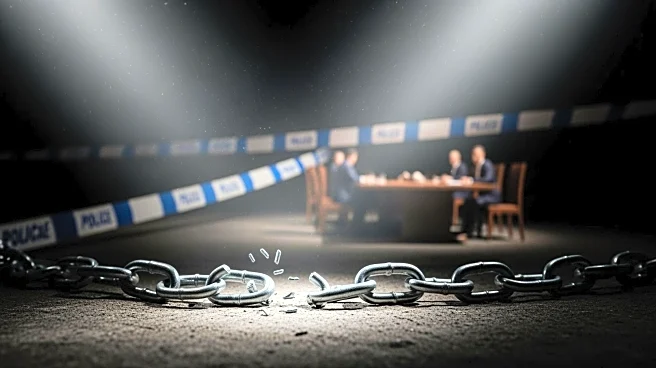What's Happening?
In Rio de Janeiro, Brazil, a police operation targeting the Comando Vermelho gang resulted in the deaths of at least 132 individuals, marking the deadliest police operation in the country's history. The raid was meticulously planned over two months, aiming
to drive gang members into a forested area where a special operations unit awaited. The operation led to the arrest of 113 suspects and the seizure of 118 firearms. Despite the high number of casualties, Rio's security head, Victor Santos, stated that the elevated lethality was expected but not desired. The operation has drawn criticism from civil society groups and the United Nations Human Rights office, which urged prompt investigations into the incident.
Why It's Important?
The operation highlights the ongoing struggle against drug-related crime in Brazil, particularly in Rio de Janeiro's favelas. The Comando Vermelho gang is a major player in the drug trade, and the raid represents a significant effort to curb its influence. However, the high casualty rate raises concerns about the methods used in such operations and their impact on marginalized communities. The incident may affect Brazil's international image, especially as Rio prepares to host global climate events. The operation's aftermath could influence public policy and law enforcement strategies in Brazil, potentially leading to increased scrutiny and calls for reform.
What's Next?
The Brazilian government may face pressure to investigate the operation thoroughly, especially given the involvement of international human rights organizations. The Justice Minister plans to meet with Rio's governor and may increase federal security presence in the area. The incident could lead to changes in how police operations are conducted in Brazil, particularly in terms of transparency and accountability. The global community will likely watch closely as Brazil navigates the fallout from this operation, especially with upcoming international events in Rio.
Beyond the Headlines
The operation underscores the ethical and legal challenges faced by law enforcement in Brazil. The high number of civilian casualties raises questions about the balance between security and human rights. The incident may prompt discussions on the militarization of police forces and the need for more community-focused approaches to crime prevention. Long-term, this could lead to shifts in public perception and policy regarding law enforcement tactics in Brazil.
















